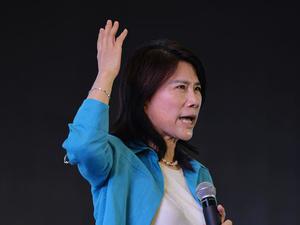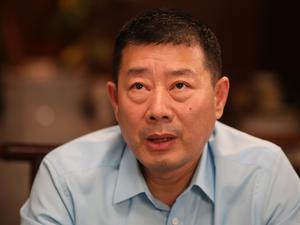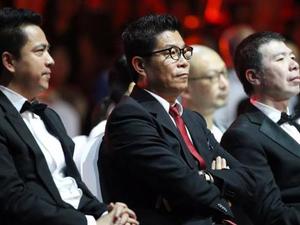来源:中国基金报
11月28日,香港特区政府财政司司长陈茂波在香港金融管理局——国际结算银行高级别会议上表示。香港特区政府始终将金融稳定和金融安全视为首要任务之一。香港金融体系保持稳固,其背后强大的支持,是高达4000亿美元的庞大的外汇基金。他同时指出,全面脱钩现在似乎不太可能发生。
香港金融体系保持稳固
陈茂波表示,国际结算银行亚洲办事处自1998年在香港成立以来,一直于香港紧密合作,共同促进国际合作,维护全球金融体系的稳定。国际结算银行亚洲办事处成立25年来,与亚洲共同成长,整个过程并非一帆风顺,亚洲穿越了经济周期,经历了金融危机、新冠疫情及不时的社会动荡。
陈茂波说:“从90年代末的亚洲金融风暴,到2008年的全球金融危机,再到新冠疫情对市场的冲击,尽管面临诸多挑战,香港的经济及金融体系的规模及成熟度却在持续成长,充分证明香港的韧性和适应能力。作为亚洲的金融中心和一个开放型的小经济体,香港在几次危机中都处于‘暴风眼’,但香港的金融体系仍能保持稳固,每次‘风暴’之后,我们会变得更加强韧。联系汇率制度就是很好的例证。1998年至2005年,我们采取了大量措施,建立了一个稳健的监管架构及汇率机制。当然,其背后强大的支持,是高达4000亿美元的庞大的外汇基金,其规模是香港货币基数的1.7倍。”
陈茂波强调,香港特区政府始终将金融稳定和金融安全视为首要任务之一。多年来,香港建立起了成熟的监管体系,拥有高质量且符合国际标准的法律和规则。香港高度重视对未知风险的防范,已建立了一个高水平的跨市场协调机制,覆盖金融市场所有领域,密切监测金融风险。
陈茂波指出,香港是连接世界与中国内地的桥梁,也是离岸人民币中心,中央政府无论是在监管还是在发展方面,给予了香港毫无保留的支持。其中最好的例子是,去年香港金管局与中国人民银行的货币互换协议规模扩至8000亿元人民币,为市场带来强大的人民币流动性。此外,“沪港通”“债券通”“互换通”等一系列针对机构投资者及个人投资者的与内地金融领域的“互联互通”产品,也大大地提升了香港人民币的流动性,丰富了人民币产品生态。
全面脱钩不太可能发生
陈茂波高度强调跨境合作的重要性。他说,金融市场是全球化的市场,资本跨境流动大大促进了投资和经济增长,同时也让各个经济体面临遭受外部冲击的潜在风险。他说:“从亚洲金融危机到最近美国区域性银行风波,我们看到,区域性金融危机有向全球蔓延的风险,而且,现在蔓延的速度更快。各国央行和监管机构在风险事件发生时,会积极相互协调,共同努力恢复市场信心和金融稳定。在风险被化解后,大家还会分享经验,并实施全球一致的措施来解决危机中暴露出来的问题。”
然而,陈茂波指出,众所周知,金融行业的产品和服务在不断发展和创新,在这个过程中,会出现新的风险。例如虚拟资产,就是近几年出现的新产品。这就需要各国政府和央行共同努力,分享相关经验和信息,并实施协调一致的政策,以确保全球金融体系的稳定性和韧性。
陈茂波指出,尽管事实证明国际合作是大有裨益的,近年来,世界出现了去全球化和脱钩的苗头。当今世界的供应链盘根错节,阻碍货物、服务和资本的流动,以及国际金融市场的割裂,可能导致成本增加、市场流动性降低,最终削弱全球金融体系。此外,由于去全球化和脱钩会令一些国家无法获得市场、投资或技术,进而加深区域发展的不平衡。这种不平衡甚至可能令地区之间的紧张和冲突加剧。这些因素都可能给全球带来通胀压力,进而给各国央行制定货币政策带来更大挑战。
陈茂波表示,幸运的是,全面脱钩现在似乎不太可能发生,因为紧张的政治局势暂时缓解,而且,全球经济和金融体系的紧密联系也是极为必要的。此外,并非所有国家都抱持‘冷战’思维。许多经济体,如中东和欧洲国家,正在进行多元化投资并加强与亚洲经济体的联系。
他说:“近年来,香港在促进跨地区合作方面发挥了非常积极的作用,并取得了丰硕的成果。历史教训以及新冠疫情的经验表明,气候变化及人工智能等颠覆性技术,就是我们此刻共同面对的挑战与机遇,需要世界各国共同努力。相信通过建立信任和合作,我们将共同走向更加可持续和有韧性的未来。”
编辑/Corrine
Source: China Fund News
On November 28, the Financial Secretary of the Hong Kong Special Administrative Region Government, Mr Chan Mao-po, stated at the Hong Kong Monetary Authority - Bank for International Settlements high-level meeting. The HKSAR Government has always regarded financial stability and financial security as one of its top priorities. Hong Kong's financial system remains stable, and the strong support behind it is a huge exchange fund of up to 400 billion US dollars. At the same time, he pointed out that a complete decoupling seems unlikely to happen now.
Hong Kong's financial system remains stable
Chen Maobo said that since the establishment of the Bank for International Settlements in Hong Kong in 1998, the Asia Office of the Bank for International Settlements has been closely cooperating with Hong Kong to jointly promote international cooperation and maintain the stability of the global financial system. In the 25 years since the establishment of the Bank for International Settlements Asia office, the Bank for International Settlements has grown together with Asia. The whole process has not been smooth sailing. Asia has gone through the economic cycle and experienced financial crises, the COVID-19 pandemic, and occasional social unrest.
Chen Mao-po said, “From the Asian financial turmoil in the late 90s, to the 2008 global financial crisis, to the impact of the COVID-19 pandemic on the market, the scale and maturity of Hong Kong's economic and financial system has continued to grow despite many challenges, fully demonstrating Hong Kong's resilience and adaptability. As Asia's financial center and an open small economy, Hong Kong has been in the “eye of the storm” during several crises, yet Hong Kong's financial system has remained stable, and after every “storm,” we will become more resilient. The linked exchange rate system is a good example. From 1998 to 2005, we took a number of measures to establish a sound regulatory framework and exchange rate mechanism. Of course, the strong support behind this is a huge exchange fund of up to 400 billion US dollars, which is 1.7 times the size of Hong Kong's currency base.”
Chan Mao-po stressed that the HKSAR government has always regarded financial stability and financial security as one of its top priorities. Over the years, Hong Kong has established a mature regulatory system with high-quality laws and rules that meet international standards. Hong Kong attaches great importance to preventing unknown risks. It has established a high-level cross-market coordination mechanism covering all areas of the financial market and closely monitoring financial risks.
Chen Maobo pointed out that Hong Kong is a bridge between the world and mainland China, as well as an offshore RMB center. The central government has given Hong Kong unreserved support in terms of regulation and development. The best example is that the scale of the currency swap agreement between the Hong Kong Monetary Authority and the People's Bank of China was expanded to 800 billion yuan last year, bringing strong RMB liquidity to the market. Furthermore, a series of “interconnection” products targeting institutional investors and individual investors in the financial sector with the Mainland, such as “Shanghai-Hong Kong Stock Connect,” “Bond Connect,” and “Exchange Connect,” have also greatly enhanced the liquidity of the Hong Kong RMB and enriched the RMB product ecosystem.
Complete decoupling is unlikely to happen
Chen Maobo strongly emphasized the importance of cross-border cooperation. He said that the financial market is a global market, and the flow of capital across borders has greatly promoted investment and economic growth, while also exposing all economies to the potential risk of external shocks. He said, “From the Asian financial crisis to the recent regional banking crisis in the US, we have seen that there is a risk that the regional financial crisis will spread globally, and now it is spreading even faster. Central banks and regulators of various countries will actively coordinate with each other and work together to restore market confidence and financial stability when a risk event occurs. After the risks have been mitigated, everyone will also share experiences and implement globally consistent measures to resolve the problems revealed during the crisis.”
However, Chen Maobo pointed out that as we all know, products and services in the financial industry are constantly developing and innovating, and in the process, new risks will arise. Virtual assets, for example, are new products that have appeared in recent years. This requires governments and central banks to work together, share relevant experiences and information, and implement coordinated policies to ensure the stability and resilience of the global financial system.
Chen Maobo pointed out that although facts have proved that international cooperation is of great benefit, the world has shown signs of de-globalization and decoupling in recent years. The intertwined supply chains in today's world, impeding the flow of goods, services, and capital, and the fragmentation of international financial markets may lead to increased costs, reduced market liquidity, and ultimately weakening the global financial system. Furthermore, since de-globalization and decoupling would prevent some countries from gaining access to markets, investment, or technology, it would further imbalances in regional development. This imbalance may even increase tension and conflict between regions. All of these factors are likely to put inflationary pressure on the world, which in turn poses greater challenges to central banks in formulating monetary policies.
Chen Maobo said that fortunately, complete decoupling now seems unlikely because the tense political situation is temporarily easing, and close ties between the global economy and financial systems are also extremely necessary. Furthermore, not all countries have a “cold war” mentality. Many economies, such as those in the Middle East and Europe, are diversifying their investments and strengthening ties with Asian economies.
He said, “In recent years, Hong Kong has played a very active role in promoting cross-regional cooperation and achieved fruitful results. The lessons of history and the experience of the COVID-19 pandemic show that disruptive technologies such as climate change and artificial intelligence are the challenges and opportunities we are facing together at this moment, and require the joint efforts of countries around the world. I believe that by building trust and cooperation, we will move towards a more sustainable and resilient future together.”
Editor/Corrine

VIP课程推荐
APP专享直播
热门推荐
收起
24小时滚动播报最新的财经资讯和视频,更多粉丝福利扫描二维码关注(sinafinance)








